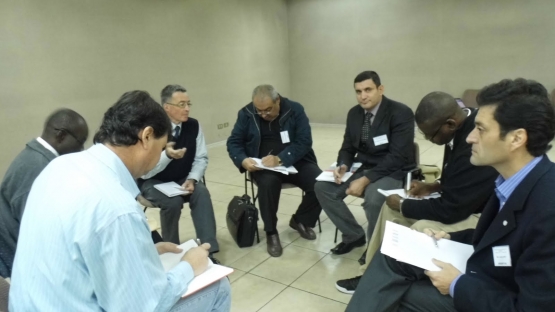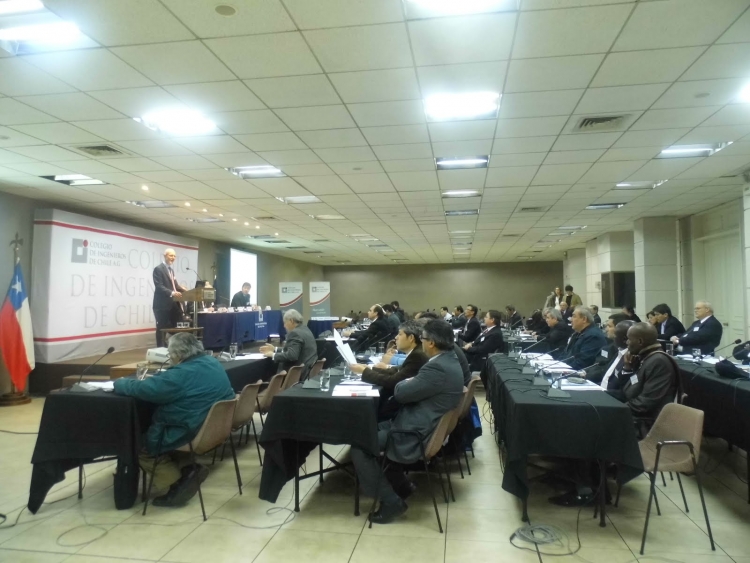On 9-13 July 2013, the IAEA organized a workshop in Santiago, Chile, to discuss and share experiences in applying the United Nations Framework Classification for Fossil Energy and Mineral Reserves and Resources 2009 (UNFC-2009) for the evaluation of uranium and thorium resources. The workshop was held under the auspices of an interregional IAEA technical cooperation (TC) project "Supporting Uranium Exploration, Resource Augmentation and Production Using Advanced Techniques". It was supported by the United Nations Economic Commission for Europe (UNECE), the Economic Commission for Latin America and the Caribbean (ECLAC), the Ibero-American Programme for Science and Technology for Development (CYTED) and hosted by the Colegio de Ingenieros de Chile A.G, Comisión Chilena de Energía Nuclear, and the Ministerio de Minería, Chile. Sixty participants and experts from forty countries attended the workshop.
Uranium and thorium are essential resources for the sustainability of the world's energy development. A responsible recovery process of these elements is, therefore, very important.
UNFC-2009 provides a simple and uniform format for the reporting of energy reserves and resources to ensure sustainable approaches to resource extraction, including the recovery of uranium and thorium.
During the workshop, the experts shared various experiences and approaches for the in-depth application of UNFC-2009 in the effective management of uranium and thorium resources. A special emphasis was placed on comprehensive extraction where uranium and thorium are produced as by-products of other commodities, such as copper and phosphates. UNFC-2009 offers a framework for assessing such recovery processes and for exploring the benefits of the extraction of other elements, such as rare-earth and molybdenum from conventional uranium projects. Moreover, the workshop focused on tools for global communication in evaluating and assessing uranium and thorium resources from a sustainability point of view, where recovery is maximized and the footprint of mining and use of energy and water are minimized.



